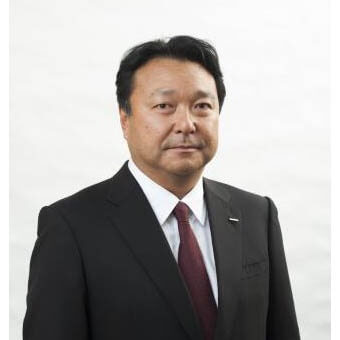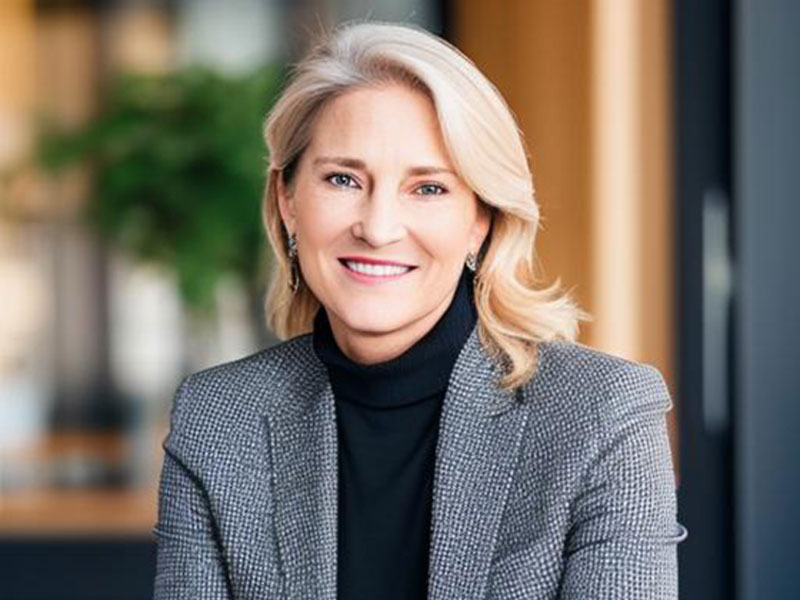Dentsu Inc. named a 36-year veteran of the Japanese ad giant as its new president and CEO, replacing the chief executive who resigned after the suicide of an overworked young employee exposed tough working conditions at the company and in Japan in general.

Toshihiro Yamamoto Credit: Dentsu
The new CEO, Toshihiro Yamamoto, joined Dentsu in 1981. The company said he is the only president to have led all three domestic business domains — media content, account services and business development. He replaces Tadashi Ishii, who had been in the role since 2011. The change was announced after a board meeting and will go into effect Jan. 23.
Dentsu, the owner of Dentsu Aegis Network and its agencies including Carat, McGarryBowen, 360i, iProspect and Isobar, is the fifth-largest global agency company by revenue. It has had a difficult few months in Japan, where it does nearly half its business. In September, the company acknowledged it had overbilled some clients for digital work in Japan and was investigating; this week, an internal investigation tallied $1 million in unsuitable business transactions.
Dentsu was dealt another setback when it emerged this week that Procter & Gamble will direct some of its Japan media account away from a partnership between Dentsu and WPP’s MediaCom.
A spokesman for P&G in Japan, Noriyuki Endo, said the company is moving its media planning work for Japan to two new principle agency groups: Carat and Dentsu Aegis Network (which is owned by parent company Dentsu), as well as a partnership between Omnicom and Japanese agency Hakuhodo. He said the company has worked with Dentsu for traditional TV media buying, and that would not change under the new scheme.
The win is expected to pave the way for Omnicom’s new media agency Hearts & Science to soon enter Japan. Hearts & Science was launched in 2016 after Omnicom won the bulk of P&G’s media business in North America. Hearts & Science opened its first office outside North America, in London, in September.

Greg Paull, Principal & Co-Founder
Greg Paull, R3 co-founder and principal, said P&G may have been attracted by the data analytics capabilities of Omnicom’s data and technology group, Annalect.
“P&G doesn’t have the same size business (in Japan) as in the U.S., and every dollar matters, so strong data analytics were going to be essential,” he said.
Changes at Dentsu
In the statement announcing Dentsu’s leadership change, incoming CEO Mr. Yamamoto said, “My mission is to re-establish trust in Dentsu in Japan, and build a sustainable growth path for the long term.”
In a separate case that drew even more scrutiny than the overbilling scandal, 24-year-old Dentsu employee Matsuri Takahashi committed suicide by jumping from a company dormitory, and labor inspectors ruled that her death stemmed from overwork. Her death received widespread media coverage, and The Japan Times said the Labor Ministry had “referred the company and one of its male executives to prosecutors on suspicion of forcing Takahashi to work and to underreport her illegally long working hours.”
The case prompted Dentsu to enact reforms to limit working hours in Japan, such as turning off the lights each night at 10 p.m. In December, Dentsu’s CEO took responsibility for Ms. Takahashi’s death and said he would resign.
R3’s Mr. Paull said he suspected Mr. Yamamoto had been groomed for some time; he pointed out that the company had chosen to elevate one of eight senior vice presidents.
“At Dentsu you’re going to get predictable decision-making, a very patient and structured succession-planning,” he said. Mr. Yamamoto “obviously has a lot of experience – that group of eight (senior VPs) are running their own media agencies within Dentsu and have a lot of autonomy in decision-making.”
The company also gave two other top execs the extra title of “representative director.” They are Shoichi Nakamoto, senior executive VP and CFO, and Yoshio Takada, executive VP. The CFO was just in the news for running the internal investigation into Dentsu’s overbilling and accounting problems.
Source: Ad Age





